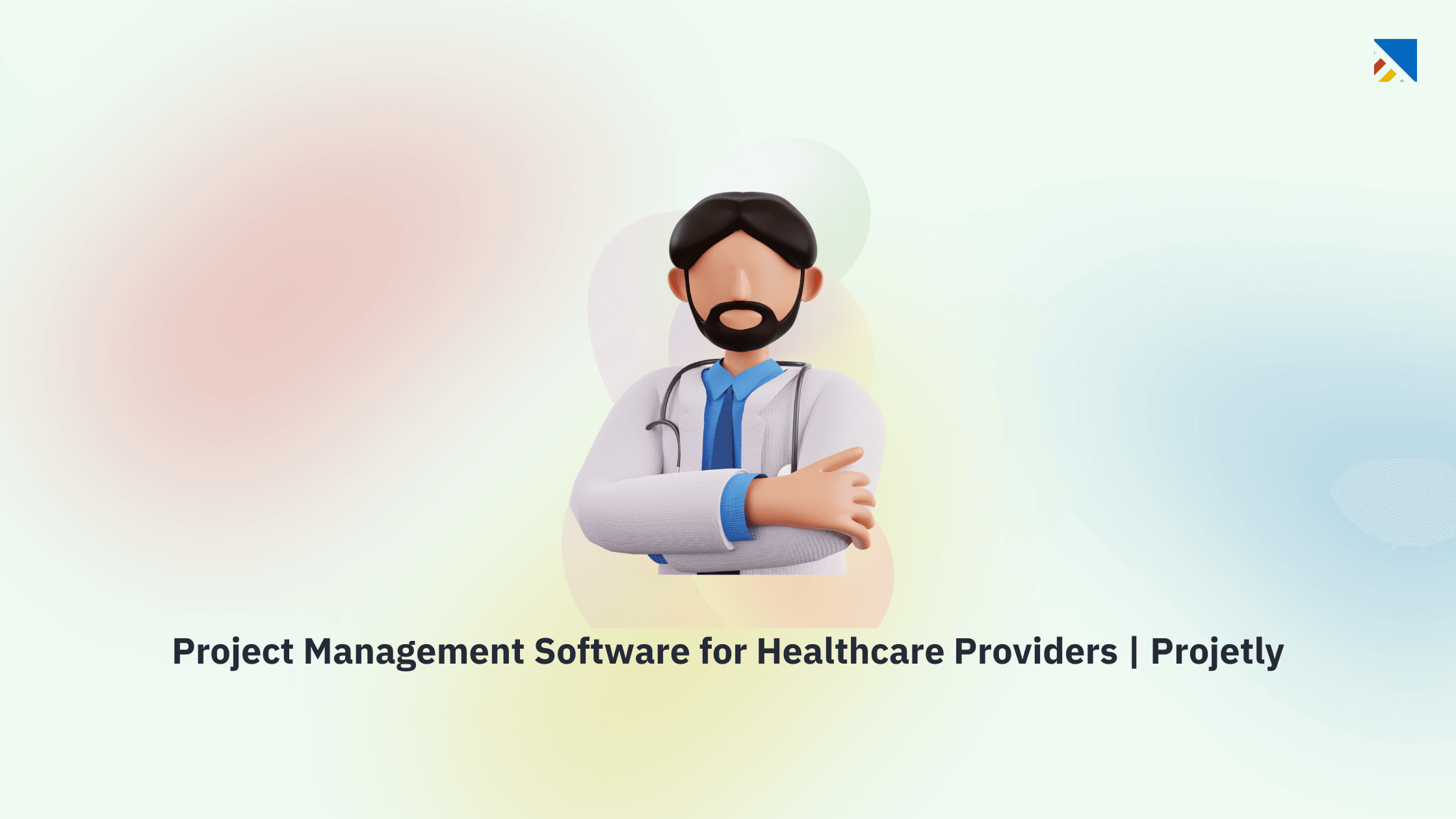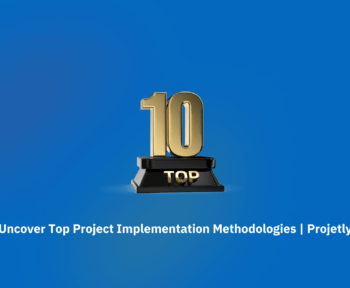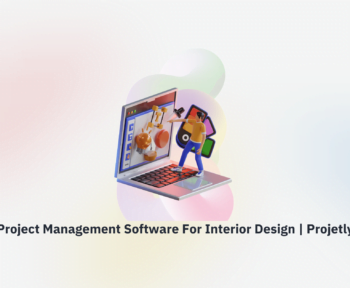In the ever-evolving world of healthcare, efficiency is paramount. With increasing demands on resources, heightened patient expectations, and regulatory complexities, healthcare providers must adapt quickly. Have you ever wondered how some organizations manage to streamline their operations while others struggle? The secret often lies in effective project management.
Project management software in 2024 is no longer just a luxury; it’s an essential tool that empowers healthcare providers to optimize their workflows and enhance patient care. According to a Gartner study, nearly 75% of healthcare organizations have reported significant improvements in operational efficiency after integrating project management methodologies. This highlights the importance of leveraging technology to keep pace with the industry’s challenges.
So, what can you expect from this guide? We’ll delve into the critical aspects of project management software tailored specifically for healthcare providers. You’ll learn about the unique challenges faced by the healthcare sector, the key features to look for in software solutions, and how to choose and implement the right tool for your organization.
Whether you’re a healthcare executive looking to improve your team’s productivity or a project manager seeking to enhance patient outcomes, this guide is for you. Ready to discover how project management software can transform your healthcare operations? Let’s dive in!
Table of Contents
The Need for Project Management Software in Healthcare
In the fast-paced and ever-evolving world of healthcare, effective project management is not just beneficial—it’s essential. Healthcare providers face a myriad of challenges that can complicate operations, potentially impacting patient care and organizational efficiency. According to a Gartner study, 70% of healthcare organizations reported that they struggle with project execution due to inadequate project management practices. Let’s explore these unique challenges and how implementing project management solution can be a game-changer for healthcare organizations.

Unique Challenges Faced by Healthcare Providers in Project Management
Regulatory Compliance (HIPAA, etc.)
Navigating the complex landscape of healthcare regulations, including HIPAA, is a daunting task. Compliance is not optional; it’s a legal requirement that demands meticulous attention to detail. According to the American Hospital Association, nearly 50% of healthcare organizations have reported being penalized for HIPAA violations. Any lapse can result in severe penalties and damage to a provider’s reputation. Healthcare project management software helps keep compliance on track by providing tools for documentation, tracking regulatory requirements, and maintaining audit trails, ensuring that your organization meets all legal obligations without unnecessary headaches.
Patient Safety Considerations
At the heart of healthcare is patient safety, which must be prioritized in every project and operation. A National Patient Safety Foundation report found that over 400,000 deaths per year in the U.S. are linked to preventable harm in hospitals. Healthcare providers must constantly manage and mitigate risks that could compromise patient care. Project management tools offer features such as risk assessment templates and incident reporting systems that enable teams to identify potential safety issues early on and take proactive measures. This ensures that safety protocols are adhered to and that patient care is never compromised.
Complex Stakeholder Management
In healthcare, numerous stakeholders—from doctors and nurses to administrators and IT specialists—must collaborate seamlessly. This complexity can lead to miscommunication and delays if not managed effectively. A study by Deloitte found that poor communication contributes to 30% of project failures in healthcare settings. Project management solution provides a centralized platform for all stakeholders to communicate, share updates, and collaborate on projects in real time. This not only enhances teamwork but also fosters accountability and transparency across the organization.
Resource Allocation in High-Pressure Environments
The ability to allocate resources efficiently is critical in a high-pressure environment like healthcare, where every second counts. Limited staff, equipment shortages, and budget constraints can hinder the quality of care if not managed properly. According to a Bain & Company report, healthcare companies that effectively manage their resources can reduce costs by 15% to 25%. Project management solution allows healthcare providers to visualize resource availability, track workloads, and allocate personnel and equipment where they are most needed. This level of oversight helps avoid burnout among staff and ensures that patients receive timely care.
Benefits of Implementing Project Management Software in Healthcare Organizations
Improved Patient Care Through Streamlined Operations
By integrating project management solution into daily operations, healthcare providers can streamline processes, reduce administrative burdens, and enhance the quality of care. A McKinsey & Company study found that organizations that adopt project management best practices can achieve 20-30% improvements in project outcomes. This means that healthcare teams can focus more on what truly matters: delivering exceptional patient care.
Enhanced Communication Among Healthcare Teams
Effective communication is crucial in a healthcare setting. Project management tools facilitate real-time communication, enabling team members to collaborate effortlessly. This leads to quicker decision-making, better coordination, and fewer misunderstandings, ultimately benefiting patient outcomes. Research shows that effective communication can improve patient satisfaction scores by as much as 30%.
Better Resource Allocation and Cost Management
With project management system, healthcare firms can gain insights into resource utilization and operational costs. This information empowers managers to make informed decisions about budgeting and resource allocation, ensuring that financial resources are used efficiently and that patient care is never compromised due to budgetary constraints. Organizations that adopt data-driven decision-making report a 15% increase in overall efficiency.
Increased Regulatory Compliance and Risk Management
Implementing project management solution can significantly enhance an organization’s ability to comply with regulations. With features designed to track compliance activities, manage documentation, and mitigate risks, healthcare providers can maintain a high standard of care while ensuring they meet all legal requirements. A study by the Compliance, Risk Management & Audit Committeeindicates that organizations with effective compliance programs can reduce their risk exposure by up to 30%.
In conclusion, the unique challenges faced by healthcare providers necessitate the use of project management system. By addressing regulatory compliance, patient safety, stakeholder management, and resource allocation, these tools can enhance operational efficiency and ultimately lead to better patient outcomes. As healthcare continues to evolve, leveraging technology to streamline project management will be crucial for organizations aiming to thrive in this dynamic environment.

Key Features of Project Management Software for Healthcare Providers
As healthcare providers seek to improve operational efficiency and patient care, the best healthcare project management software can make all the difference. Let’s explore the key features that such software should offer to meet the unique needs of healthcare firms.
Task Management and Workflow Automation
Effective task management is crucial in a healthcare setting where multiple projects often run concurrently. Look for software that allows you to:
- Create, assign, and prioritize tasks: With clear task assignments, everyone knows their responsibilities and deadlines.
- Automate routine workflows: Automating repetitive processes reduces the administrative burden, allowing healthcare teams to focus on patient care rather than paperwork.
This work management ensures that tasks flow smoothly from one team member to another, minimizing bottlenecks and enhancing productivity.
Resource Allocation and Scheduling
Healthcare environments are often dynamic, requiring optimal resource management. Effective project management platform should provide the following:
- Resource tracking: Easily monitor the availability of staff and equipment to avoid overloading personnel or underutilizing resources.
- Scheduling tools: Efficiently schedule shifts, appointments, and resources, ensuring that every aspect of patient care is adequately staffed and supported.
Proper resource allocation can lead to significant improvements in operational efficiency, especially during peak times.
Document Management and Version Control
In the healthcare sector, managing documentation is critical for compliance and quality assurance. Look for features that enable:
- Centralized document storage: Access all necessary documents in one place, ensuring that everyone on the team can retrieve important information quickly.
- Version control: Keep track of document changes and ensure that the latest version is always accessible, reducing confusion and errors.
This capability is essential for maintaining compliance with regulations and ensuring that all team members are on the same page regarding patient information and project requirements.
Collaboration Tools for Multidisciplinary Teams
Healthcare often involves various disciplines working together to provide comprehensive care. The project management system should facilitate the following:
- Real-time communication: Use chat features, discussion boards, and comment sections to enhance communication among team members.
- File sharing and collaboration: Enable team members to share documents, reports, and updates seamlessly, allowing for more effective teamwork.
These collaboration tools help break down silos between departments and foster a culture of teamwork, ultimately leading to better patient care.
Reporting and Analytics Capabilities
Data-driven decision-making is essential in healthcare. Look for software that includes:
- Customizable reporting features: Generate reports on project progress, resource utilization, and patient outcomes tailored to your organization’s needs.
- Analytics dashboards: Visualize key performance indicators (KPIs) to identify trends and make informed decisions.
This feature allows healthcare providers to monitor the success of their projects and make adjustments as needed to improve outcomes.
Integration with Existing Healthcare Systems (EHR, EMR, etc.)
To streamline operations, it’s crucial that project management platform integrates seamlessly with existing healthcare systems. Ensure that the software can:
- Sync with electronic health records (EHRs) and electronic medical records (EMRs): This integration facilitates the smooth flow of information between project management and patient care systems.
- Connect with billing and accounting software: Efficient financial management ensures that projects remain within budget and resources are allocated appropriately.
Having an integrated system reduces errors and enhances overall efficiency in patient care and project execution.
Mobile Accessibility for On-the-Go Healthcare Professionals
Healthcare professionals are often on the move, whether in hospitals, clinics, or patient homes. Therefore, look for software that offers:
- Mobile-friendly interfaces: Access to project management tools on smartphones or tablets allows team members to stay connected and manage tasks from anywhere.
- Real-time notifications: Instant updates on project status and task assignments ensure that everyone is informed, even when they’re not at their desks.
Mobile accessibility empowers healthcare providers to respond quickly to patient needs and project developments, enhancing overall efficiency.
Security Features for Protecting Sensitive Patient Information
Given the sensitivity of patient data, security is a top priority. Look for project management solution with:
- Robust security protocols: Encryption, user authentication, and secure access controls are vital for safeguarding patient information.
- Compliance with regulations: Ensure that the software adheres to healthcare regulations, such as HIPAA, to protect patient privacy and data integrity.
By prioritizing security, healthcare firms can confidently manage projects without compromising sensitive information.
The right project management solution equipped with these key features can significantly enhance the efficiency and effectiveness of healthcare providers. By focusing on task management, resource allocation, document management, collaboration, reporting, integration, mobile accessibility, and security, healthcare facilities can streamline their operations and ultimately improve patient care. Embracing technology in this way is not just a trend; it’s a necessity for thriving in the modern healthcare landscape.
Implementing Project Management Software for Healthcare Providers
Implementing project management software in healthcare settings is a strategic move that can significantly enhance efficiency and improve patient care. To ensure a smooth transition, hospitals should follow a structured approach.

- Assessing Organizational Needs and Goals
The first step involves a thorough assessment of your organization’s specific needs and goals. Engage stakeholders to identify pain points in current project management processes, whether they be related to communication, compliance, or operational inefficiencies. Clearly defined objectives will guide the selection of the software and its features, ensuring alignment with your organization’s goals. - Selecting the Right Software Solution
With your needs outlined, the next step is to select a project management application that meets those requirements. Look for solutions that offer features tailored to healthcare, such as task management, resource allocation, and compliance tracking. User-friendliness is crucial; the more intuitive the software, the easier it will be for staff to adopt it. Researching vendor backgrounds, support offerings, and integration capabilities with existing systems is essential for informed decision-making. - Planning the Implementation Process
Once you’ve chosen the right software, develop a comprehensive implementation plan. This should include a clear timeline, defined roles and responsibilities, and key milestones to track progress. Engaging a project lead and involving team members in the planning process can foster ownership and buy-in, which is critical for a successful rollout. - Training Staff and Ensuring Adoption
Training is a critical element of the implementation process. Design tailored training sessions for different user groups, ensuring that everyone understands how to navigate and utilize the software effectively. Consider creating ongoing support resources, like user manuals or FAQs, to assist staff after the initial training. Establishing a culture that embraces the new system will encourage adoption and minimize resistance. - Integrating with Existing Systems and Workflows
A seamless integration with existing healthcare systems (such as EHR and EMR) is vital for maximizing efficiency. Ensuring compatibility reduces duplication of effort and allows for smooth data flow across platforms. Aligning the new software with established workflows will minimize disruption to ongoing operations and enhance user satisfaction. - Overcoming Common Implementation Challenges
Implementation challenges can arise, such as resistance to change or technical issues. Addressing these proactively is key. Foster an environment of open communication where staff can voice their concerns and questions. Highlighting the benefits of the new software can help alleviate fears and build enthusiasm among team members.
Best Practices for Using Project Management Software in Healthcare
To maximize the benefits of project management suite, healthcare agencies should adopt best practices that promote effective usage.
- Establishing Clear Project Objectives and Success Metrics
Set clear project objectives and define success metrics from the outset. Utilizing SMART (Specific, Measurable, Achievable, Relevant, Time-bound) criteria will help ensure that your goals are well-defined and trackable. Establishing key performance indicators (KPIs) relevant to healthcare projects, such as patient satisfaction scores and project completion times, can guide teams toward success. - Encouraging Consistent Use and Data Input
Promote a culture of accountability where team members consistently update project progress and input data into the system. Regular reminders and check-ins can encourage this behavior. Recognizing and rewarding teams that effectively utilize the software can also foster consistent engagement. - Leveraging Automation to Reduce Manual Tasks
Utilizing the automation features of your project management suite can significantly reduce the burden of manual tasks. Automate reminders for deadlines, status updates, and reporting processes to streamline workflows. This not only saves time but allows your staff to focus on more critical aspects of patient care. - Utilizing Reporting Tools for Continuous Improvement
Regularly utilize reporting tools to analyze project performance. Tracking metrics can provide valuable insights into what is working and what needs adjustment. Creating feedback loops where teams can discuss reporting insights will facilitate ongoing improvement and responsiveness. - Ensuring Ongoing Training and Support for Users
The initial training should be complemented by ongoing education and support. Schedule periodic workshops to refresh staff knowledge and introduce new features as they become available. Maintaining open support channels for users fosters a positive environment where staff can seek help and share experiences with the software.
Related blog: All that you need to know about Project Management Software In Healthcare
10 Best Healthcare Project Management Software
In the evolving landscape of healthcare, selecting the best project management software is critical to ensure project goals are met efficiently and successfully. Here’s a list of the 10 best healthcare project management software options that provide tailored solutions for healthcare providers, project teams, and healthcare professionals alike.
- Microsoft Project – Known as a strategic project management software, Microsoft Project offers healthcare project managers robust project planning, project tracking, and project execution features. With advanced project management tools for healthcare, it helps streamline project timelines and manage complex project needs in healthcare settings.
- Asana – Ideal for healthcare teams, Asana offers project management features such as project schedules, risk management tools, and a visual representation of project milestones. It’s built for healthcare teams that need to maintain multiple project workflows, making it a reliable choice in 2024.
- Trello – A visual project management platform, Trello helps healthcare professionals manage various project tasks, project timelines, and project status updates. Its project portfolio feature assists healthcare teams in tracking work management and efficient project progression.
- Smartsheet – With powerful project and document management capabilities, Smartsheet supports healthcare project management software needs, including resource management and compliance management. This platform for healthcare ensures seamless collaboration and helps healthcare projects stay on schedule.
- Monday.com – Monday.com offers comprehensive project management software for healthcare, featuring work management, project performance analytics tools, and document management. Known for its adaptability, it’s particularly suited for healthcare professionals dealing with detailed project timelines and resource management.
- Projetly – Projetly stands out as a healthcare project management software solution, providing project tracking, document management, and risk management features designed specifically for healthcare providers. It’s a robust project management solution for healthcare project managers aiming to keep project progress on track and outcomes optimized.
- Wrike – Wrike’s project planning and healthcare project management software offers a strong project and work management structure. It includes visual project dashboards, project portfolio management, and healthcare project tracking capabilities. Wrike’s cloud-based project management enables healthcare teams to stay organized in fast-paced healthcare environments.
- ClickUp – Known for its comprehensive project planning and advanced project management capabilities, ClickUp supports different healthcare project management needs. Its reporting and analytics tools provide actionable insights, ensuring successful project outcomes and efficient healthcare project management.
- Zoho Projects – Zoho Projects is a healthcare project management platform featuring project scheduling, project management features, and digital asset management tools. With specialized compliance management and risk management tools, it addresses the unique project needs of healthcare systems and healthcare services.
- Basecamp – Basecamp is a healthcare project management tool that supports communication, project milestones, and project needs. With project teams, project managers, and healthcare operations in mind, it’s a valuable tool for healthcare settings where collaboration is crucial.
These top healthcare project management software options offer healthcare project teams, healthcare providers, and healthcare systems the tools needed to manage projects effectively. By aligning with the needs of the healthcare industry and leveraging healthcare project management features, these solutions ensure healthcare operations meet project goals, enhance resource management, and drive project success.
Evaluating ROI: Measuring the Impact of Project Management Software
After implementing project management software, it’s essential to evaluate its return on investment (ROI) to measure its impact effectively.
- Key Performance Indicators for Healthcare Projects
Identify KPIs that are most relevant to your organization. These may include metrics related to project completion rates, budget adherence, and patient outcomes. By closely monitoring these indicators, healthcare providers can assess the software’s contribution to operational success. - Cost Savings and Efficiency Gains
Evaluate the software’s impact on operational costs and efficiency. Analyze reductions in manual tasks and improvements in resource allocation, leading to cost savings. Highlight how streamlined processes contribute to overall productivity gains across the organization. - Improved Patient Outcomes and Satisfaction
Assess the effect of the software on patient care quality. Gather patient feedback to measure satisfaction levels and identify areas for improvement. Tracking metrics related to patient wait times, treatment effectiveness, and overall care experiences can provide insights into how project management tool enhances patient outcomes. - Enhanced Regulatory Compliance and Risk Reduction
Lastly, measure the software’s contribution to regulatory compliance. Analyzing adherence to standards such as HIPAA can demonstrate how improved project management practices reduce operational risks and enhance organizational resilience.
Conclusion
In conclusion, implementing project management solution in healthcare settings offers a transformative opportunity for improving operational efficiency and enhancing patient care. By carefully assessing organizational needs, selecting the right software, and adhering to best practices, healthcare providers can unlock the full potential of microsoft project management tools. The key to success lies in ongoing evaluation, adaptation, and a commitment to continuous improvement, ultimately leading to better outcomes for both healthcare teams and the patients they serve. Embracing this technology in healthcare is not just an option; it’s a necessity for thriving in today’s fast-paced and ever-evolving landscape. So, choose the best healthcare project management tool that align with your agency’s goals.
Related blog: All that you need to know about Project Management Software In Healthcare
Why do healthcare providers need project management software?
Healthcare providers need project management software to streamline complex tasks, improve collaboration across teams, ensure compliance with regulations, manage resources effectively, and enhance patient care by optimizing administrative workflows.
Is project management software in healthcare HIPAA-compliant?
Yes, many project management tools for healthcare are designed to be HIPAA-compliant, ensuring that patient data is handled securely. It’s important to verify that the software you choose meets the necessary regulatory requirements for protecting sensitive information.
How does project management software enhance communication between healthcare teams?
Project management software facilitates real-time collaboration between medical staff, administrators, and departments. By centralizing communication, it ensures that everyone stays informed about tasks, schedules, and patient needs, improving overall coordination.
Is project management software scalable for large healthcare organizations?
Yes, most project management software options are highly scalable, making them suitable for large healthcare networks, hospitals, and clinics. They allow for multiple users, departments, and projects to be managed within the same platform.
Are there affordable project management software options for small healthcare providers?
Yes, there are cost-effective solutions tailored to smaller healthcare providers. Some offer tiered pricing plans or even free options with basic features, which are sufficient for smaller teams looking to streamline their operations.




